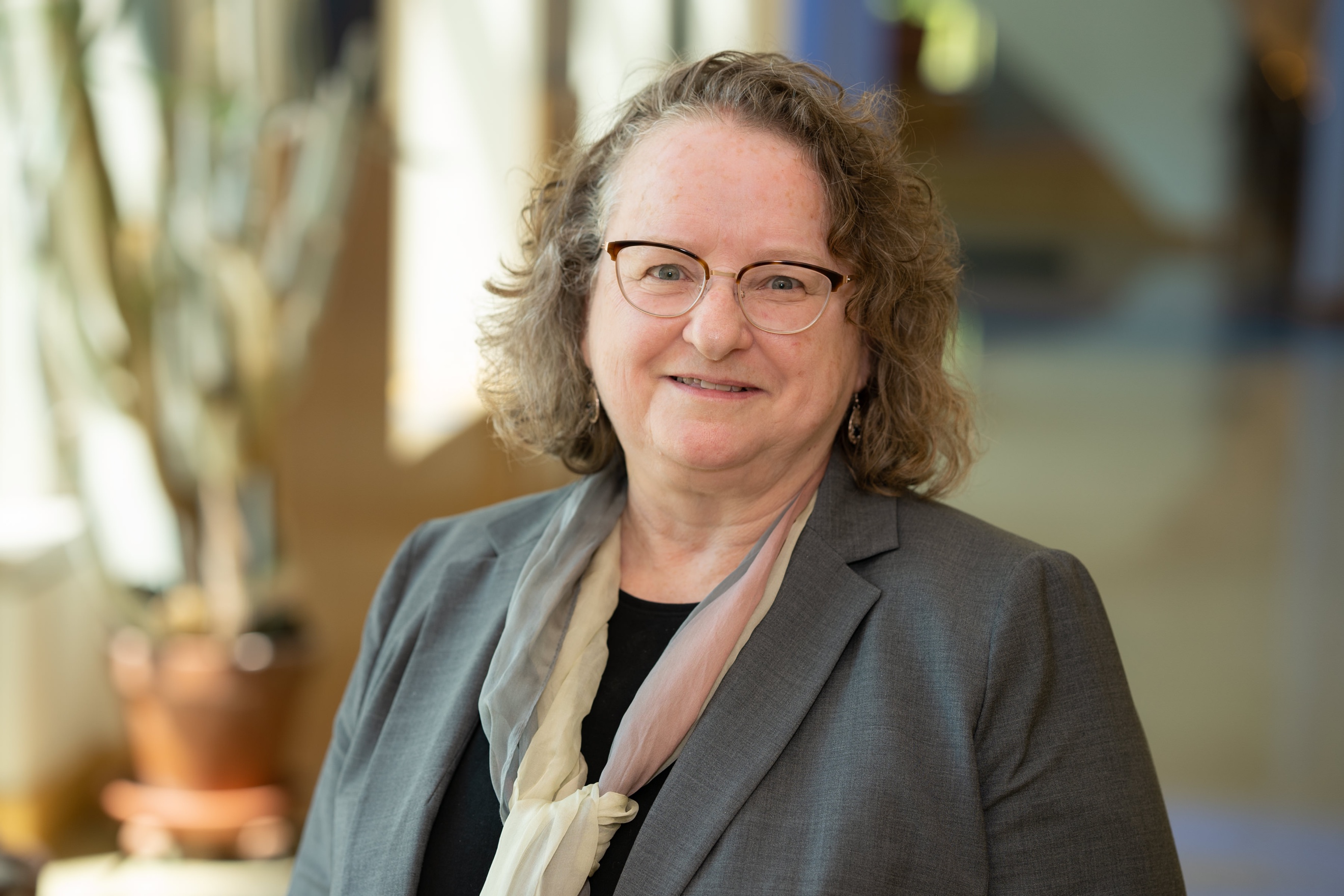
Marnie Halpern, PhD, chair and professor of molecular and systems biology at Dartmouth’s Geisel School of Medicine, has been named the Andrew Thomson, Jr., MD 1946 Professor. Halpern, who joined the Geisel faculty in 2020, is renowned for her contributions to developmental genetics and the underpinnings of neural development.
“Dr. Halpern is already making impacts on the department and the school, and it gives me great pleasure to appoint her as the Andrew Thomson Professor,” says Duane Compton, PhD, dean of the Geisel School of Medicine.
The Andrew Thomson, Jr., MD 1946 Professorship was established in 1986 with gifts from two Dartmouth alumni, Robert C. Borwell, DC ’25 and Kenneth F. Montgomery, DC ’25, in honor of Dr. Thomson’s many contributions to Dartmouth and its medical institutions.
An internal medicine physician and himself the donor of two endowed chairs at Dartmouth’s medical school, Thomson served as a member of the medical school’s Board of Overseers from 1982 to 1989, including three years as its chair, and then as a Trustee of Dartmouth-Hitchcock from 1989 to 1993.
“I am grateful for being named to the Andrew Thomson Professorship,” says Halpern. “I credit my trainees who came from Johns Hopkins with me, as well as new members of my research team who joined me here, for getting our Vail fish facility up and running and our lab operating smoothly, as I see this honor as recognition of all of our efforts.”
Halpern’s lab uses zebrafish to study how the nervous system develops and controls behavior. She and her team focus their research on left-right differences in the brain—to determine how they emerge, which genes control asymmetry, and how they impact function and behavior. Since the zebrafish’s cell physiology is similar to that of humans, it’s a valuable genetic model for studying a myriad of diseases, from neurological disorders to cancer.
Halpern has received many awards for her work, including being named a Pew Scholar in Biomedical Sciences and a Fellow of the American Association for the Advancement of Science. She earned a prestigious Merit Award in 2017 from the National Institutes of Health to support her research on left-right differences in the brain. Halpern has also served on scientific and professional society boards, including the Society for Developmental Biology and the Genetics Society of America.
Founded in 1797, the Geisel School of Medicine at Dartmouth strives to improve the lives of the communities it serves through excellence in learning, discovery, and healing. The Geisel School of Medicine is renowned for its leadership in medical education, healthcare policy and delivery science, biomedical research, global health, and in creating innovations that improve lives worldwide. As one of America’s leading medical schools, Dartmouth’s Geisel School of Medicine is committed to training new generations of diverse leaders who will help solve our most vexing challenges in healthcare.